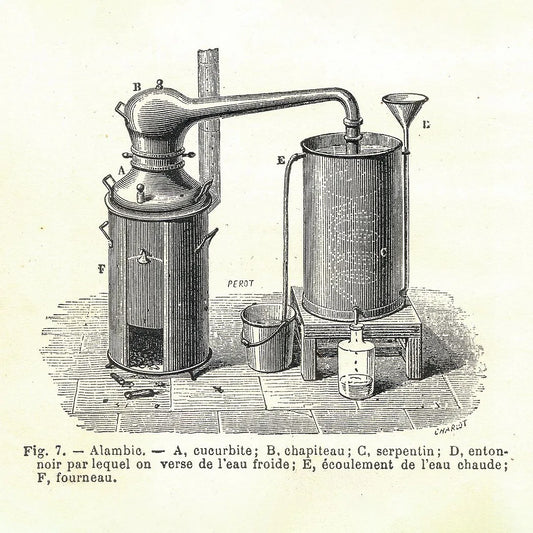The short answer to this question is that essential oils are not regulated in the United States. As they are not food, drugs, or cosmetics, they do not fall under the purview of the FDA unless the companies that package and sell them make claims about their use that they cannot substantiate with scientific proof.
Essential oils fall into the same general category as dietary supplements, vitamins, and other substances that do not claim to have specific therapeutic value. There may be many claims about the oils’ potential for healing and antimicrobial use in the world—most of it on the internet, provided by people and companies with no peer-reviewed scientific evidence—but the companies that produce these products cannot make these claims in their marketing materials.
This does not stop essential oils companies from claiming that the products are “therapeutic” and even inventing the terms “therapeutic grade,” “Grade A,” “medical grade,” and “pharmaceutical grade,” implying that some regulating body actually determines that some oils are more effective than others. No such agency exists to bestow such grades on any essential oil.
The FDA maintains a list of essential oils and other “natural extractives” that are Generally Regarded as Safe (GRAS) “for their intended use,” which in this case is “food for human consumption.” These include anise, basil, bergamot, black pepper, cassia, cinnamon, clary sage, clove, coriander, cumin, fennel, geranium, ginger, grapefruit, juniper berry, lavender, lemon, lemongrass, lime, marjoram, melissa, orange, oregano, peppermint, petitgrain, Roman chamomile, rosemary, spearmint, tangerine, thyme, wild orange, and ylang-ylang.
Even with the GRAS distinction, however, none of these oils should be consumed in quantity. One or two drops in a recipe will achieve the desired flavor; more than this will be overpowering.
Some essential oils are used as flavor additives by the food manufacturing and packaging industry. Like all natural and artificial flavorings, they are regulated by the FDA, and only those that make the GRAS list may be used in foods. Others have been banned worldwide by the International Fragrance Association in Geneva, Switzerland, for being fatal if swallowed, carcinogenic, or harmful if applied topically (see Are some essential oils toxic?).
With no official regulation of these oils and their purity, however, their use becomes a caveat emptor situation. The only entities between the oil and the user are the companies that market these oils, including the many representatives of multilevel marketing companies who are rewarded for higher sales regardless of the oils’ usage or effectiveness.
Some essential oils’ labels may state that the oils are “approved by the ISO.” The International Standardization Organization (ISO) has compiled a list of botanical names of plants used in the production of 167 essential oils, as well as the English and French names for these oils, and rules for chromatographic and ester testing methods, preparation of test samples, packaging and storing the oils, and methods for assessing the purity of individual oils. When a package suggests that the oil is “approved” by the ISO, consumers may assume that it has met a standard for quality, but the standard actually has to do with the oil’s chemical composition, not with a specific level of product quality.
Many of the claims made by unscrupulous marketers have been stricken from their websites and literature, because the FDA and the Federal Trade Commission (FTC) require that such claims be substantiated by research and approved for safety and effectiveness. When these companies made such claims without research to back them up, they were forced to walk back their hyperbolic advertising.
For example, if a company says on its website that one of its most popular essential oil blends can cure influenza, pneumonia, and cancer, this makes the product a drug according to the Federal Food, Drug, and Cosmetic (FD&C) Act. The FD&C Act defines drugs, in part, by their intended use: “articles intended for use in the diagnosis, cure, mitigation, treatment, or prevention of disease.”
Based on the claims in its advertising, the company must receive approval by the FDA through its New Drug Application process to be classified as an over-the-counter drug. If the company has not applied for this status, the FDA will approach that company to inquire about the research it has conducted to back up its claim. If the company cannot produce research, the FDA will “advise” the company that it must remove the claims of therapeutic value from all of its marketing materials, usually within 48 hours, or face “legal action seeking a Federal District Court injunction.” Such an injunction can be devastating to the company, leading to the products being recalled or pulled from the market entirely and the company refunding the purchase price to consumers. In some cases, such action could shut a company down.
Most recently, the FDA has sent warning letters to several essential oils companies to demand that they remove claims from their websites that their products can prevent or cure COVID-19. One such company promoted its oils with statements like this one: “The most important essential oils to protect against Corona Viruses are [list of oils] … This blend contains antiviral infection-fighting essential oils which are known to be effective in killing positive-stranded RNA viruses including Corona viruses.” No peer-reviewed research suggests that this could be remotely true, so the FDA forced the company to remove these statements from its marketing communications.
As of this writing, no essential oils have been classified as over-the-counter drugs by the FDA for any purpose.





